News
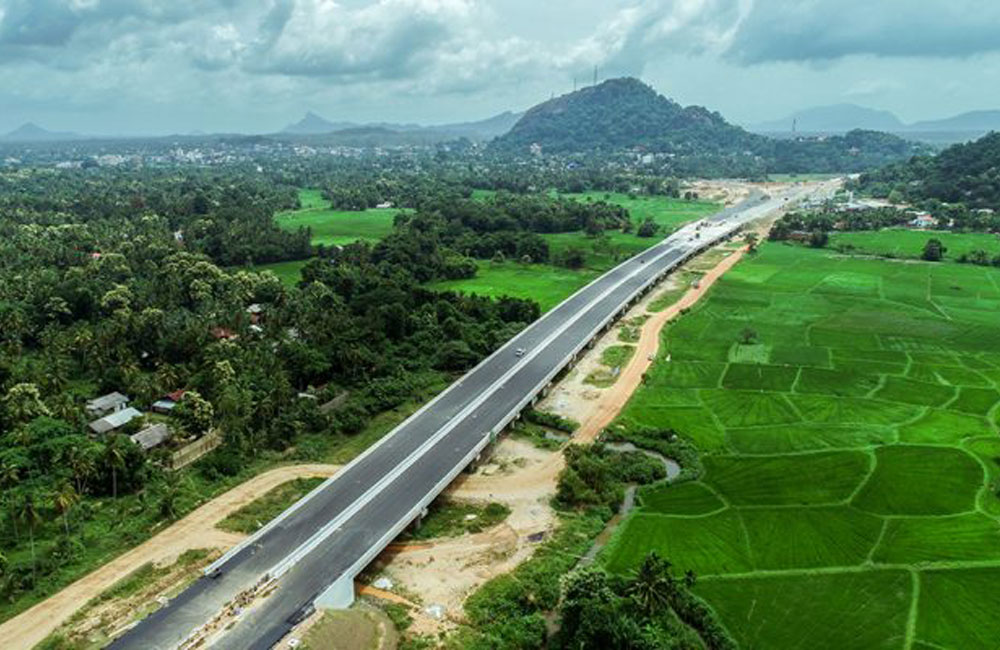
Central Expressway project cost increases to over LKR 500 billion
The Committee on Public Enterprises (COPE) has come across glaring irregularities in the execution of the Central Expressway project particularly because of construction delays, lack of proper procurement and feasibility studies.
This has resulted in extra cost of construction running up to billions of rupees giving undue benefits for some contractors and several foreign and local consultancy firms, a recent COPE report revealed.
Based on mathematical assumption, there was clear forensic evidence that such projects were 55 per cent costlier than those that were bid competitively in 2011.
According to the Chairman of COPE Prof. Charitha Herath, some of the feasibility study reports were of no use for the present expressway.
He stressed the importance of managing all future financial activities of the project properly as poor planning results in expensive changes to schedules, traces, relocations of interchanges and other critical control points.
A sum of LKR 1,759 million had been paid to an Australian company to conduct the feasibility study of the Central Expressway comprising four stages.
Without taking action to obtain feasibility reports from that company, agreements valued at LKR 97 million had been spent for several local institutions to further conduct feasibility studies, COPE divulged.
Another feasibility study was conducted for the construction of this expressway prior to 2012 at a cost of around LKR 284 million.
The delay in the commencement of work on the first section of the Central Expressway extending from Kadawatha to Mirigama between 2015 and 2019, had caused a financial loss of LKR 8 billion.
The progress report of COPE on the Central Expressway revealed that only 5 per cent of the work on the Kadawatha-Mirigama first section has been completed by China MCC and the work is now in progress.
81.44 per cent of the construction work on the second section of the project from Mirigama to Kurunegala had been completed. The total cost is around LKR 158 billion.
This 40.91 km stretch of road is divided into four sections and four consortiums of contractors have been awarded the contract.
Bids have been called for the third phase of the 31 km stretch from Pothuhera to Galagedera but construction commenced in December 2020 by Urban Development Authority (UDA) in haste at an estimated cost of LKR 142 billion.
The reason is not known for calling of bids at a time where the selection of foreign contractor is still pending but according to official sources if a foreign contractor is selected then the project would be handed over to them to carry out the balance work under BOT system.
The procurement process has not been completed yet due to irregularities in the procurement process in the third phase.
The Construction work of the fourth phase of the 60.3 km stretch of road from Kurunegala to Dambulla is yet to start.
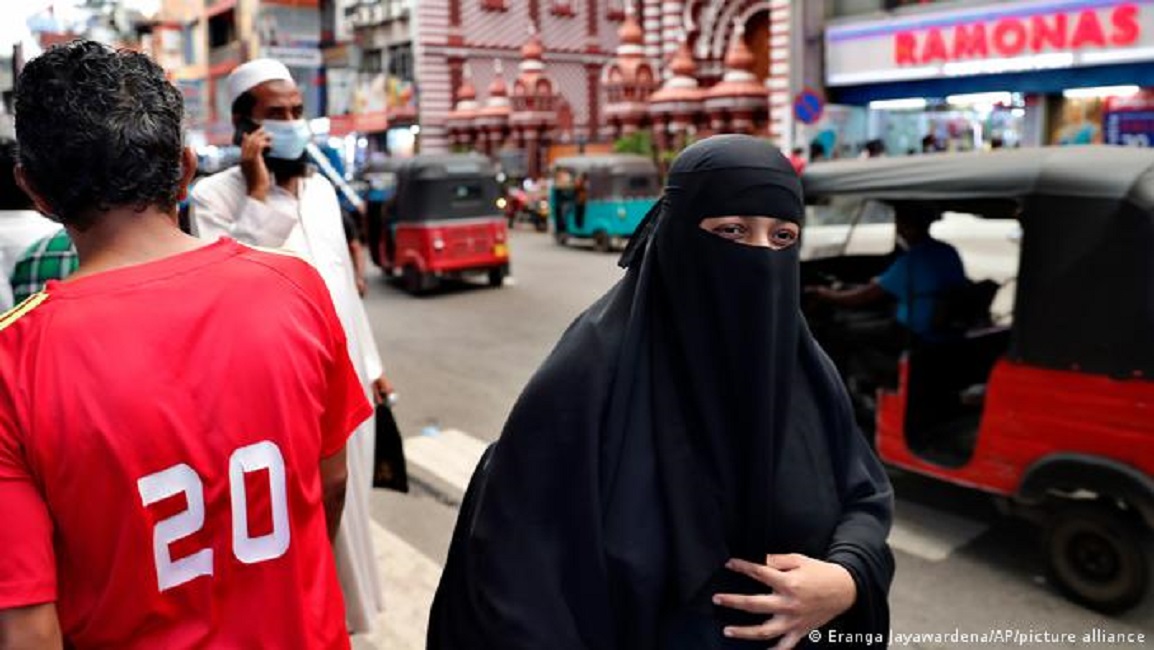
‘Religious Disharmony’ order threatens minorities - HRW

Sathosa incurs a massive Rs. 75 million loss in sugar scam saga
The largest state owned retail chain - Lanka Sathosa (Cooperative Wholesale Establishment/CWE) has incurred a loss of over Rs.75 million in the massive sugar scam, informed official sources divulged.
Some of the stocks had also been dumped on state-run Lanka Sathosa above the cleared price, similar to the Central Bank bond scam style of the bonds that were bought at low prices had been dumped on the Employees Provident Fund, it had been alleged.
The opposition charged that a large commodity trader with close links to the current administration had made large profits by selling sugar above the cleared price, and the Treasury had ‘lost’ Rs. 15.6 billion in taxes as a result.
The private company which is alleged to have imported the largest stock of sugar during the period of unprecedented tax reduction of up to Rs.25, has sold stocks of sugar to Lanka Sathosa in four occasions at different prices of Rs. 127.49 per kilo, Rs 121.50, Rs.92.00 and Rs.110.00 per kilo, official documents indicated.
After October 13, this company has sold 700 metric tons of sugar to Lanka Sathosa at a price of Rs. 127.49 per kilo in the same month, 700 mt at Rs.121.50 per kilo on October, 750 mt at Rs. 92.00 per kilo on October 20 and 600 mt at Rs 110.00 per kilo.
Accordingly, a loss of Rs.75.54 million has been incurred by Lanka Sathosa by purchasing the stocks of sugar from this supplier at a price higher than the government’s gazetted maximum retail price in four instances and selling it to consumers at this gazetted price.
After the revelation of the sugar scam by local media, Sathosa chairman had been transferred to thenSri Lanka Standards Institute.
According to official data, Sathosa has paid Rs 309.29 million to purchase 2750 mt of sugar from this company and has earned only Rs. 233.75 million by selling it to consumers at concessionary prices.
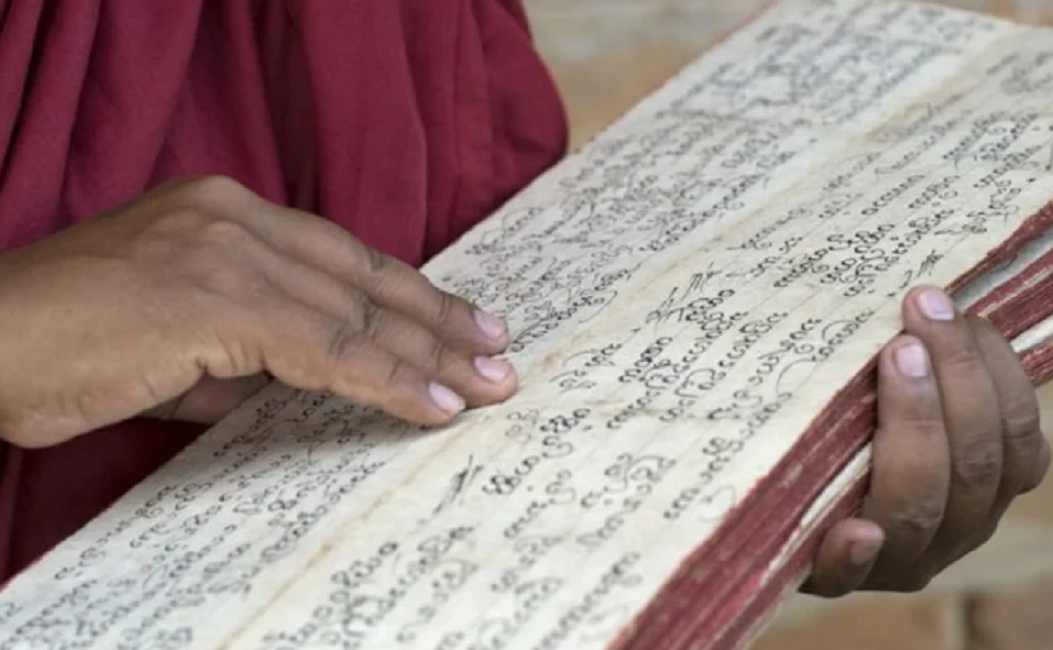
Cabinet approval for Tripitaka Conservation Act
Cabinet approval has been granted to a resolution by Prime Minister Mahinda Rajapaksa, in his capacity as the Minister of Buddha Sasana, for passing a Tripitaka Conservation Act in Parliament to preserve the Tripitaka for the sake of future generations.
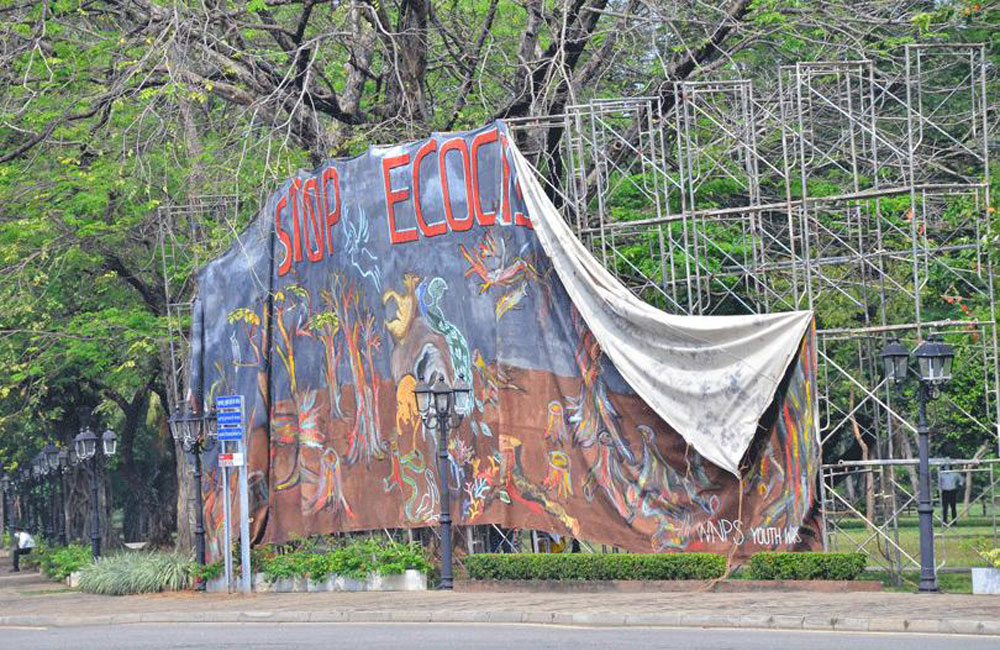
Govt. trying to cover up environmental destruction: Giant mural on ecocide taken down
A giant mural painted by the Youth Wing of the Wildlife and Nature Protection Society had been taken down by the Environment Police Unit today (19). The mural depicting ecocide was erected opposite the Nelum Pokuna Mahinda Rajapaksa Theatre, near the Vihara Maha Devi Park as part of a public awareness campaign for Global Climate Action and to draw attention to the unprecedented rate of environmental destruction occurring on a daily basis across the country.
A group of employees attached to the Colombo Municipal Council had arrived at the location this morning and had attempted to remove the mural.
The organizers stressed that the mural was put up last night after gaining approval from the CMC and the Police.
Later, it was taken down following the arrival of the Police Environment Unit.
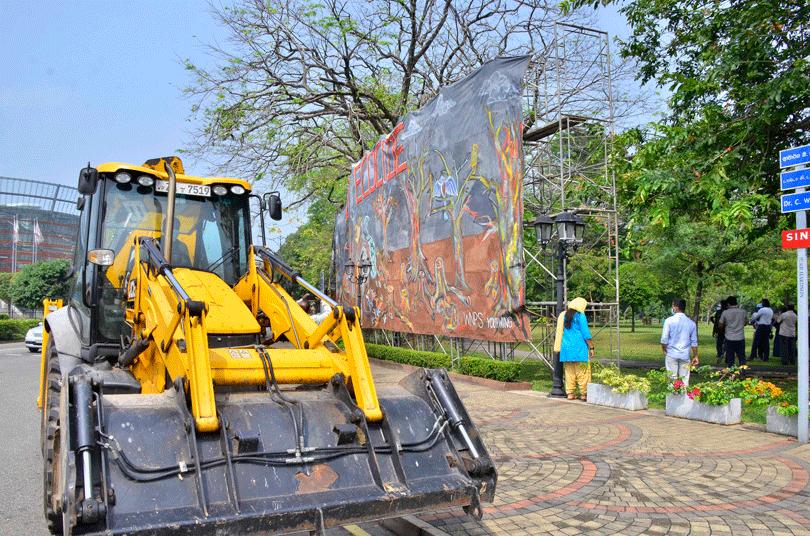
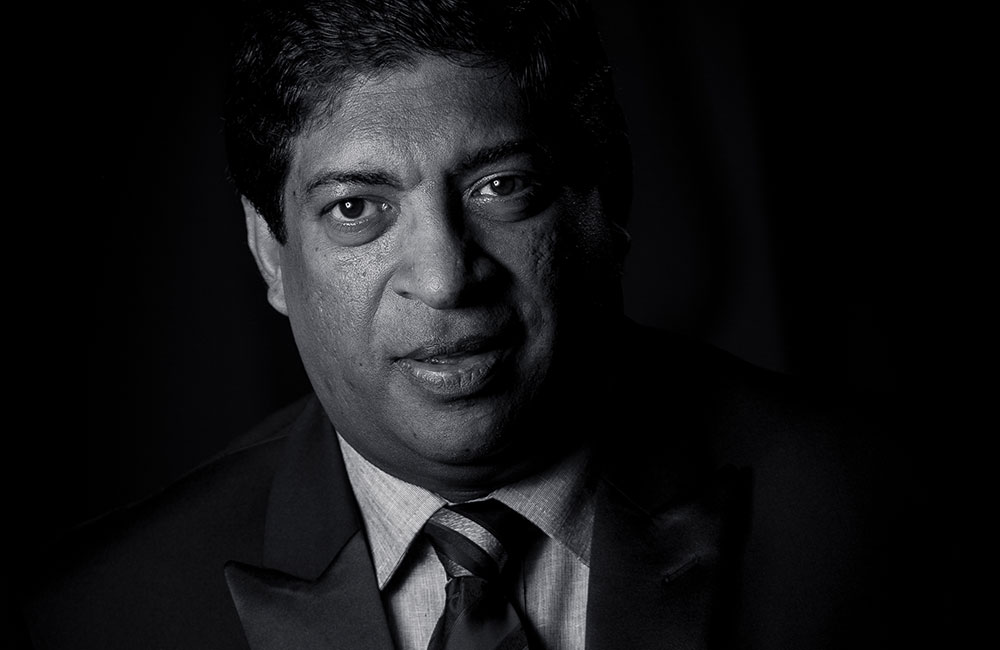
Ravi Karunanayake and eight others remanded
Former Minister Ravi Karunanayake and seven others have been ordered to be remanded until March 23 by a special Trial-at-Bar, in relation to the Central Bank bond scam. The Coordinating Officer to the Attorney General, State Counsel Nishara Jayaratne, said that the Attorney General had filed indictments before the Trials-at-Bar hearing the Bond Scam cases pertaining to the 2016 March 29 & 31st Bond Auctions on Wednesday (17).
On the 18th of February 2021, the Chief Justice appointed two Trial-at-Bars to hear the Bond Scam cases involving two bond auctions in March 2016, following a request by the Attorney General.
The request was made in order to try Ravi Karunanayake, Arjuna Mahendran, Arjun Aloysius and seven others.
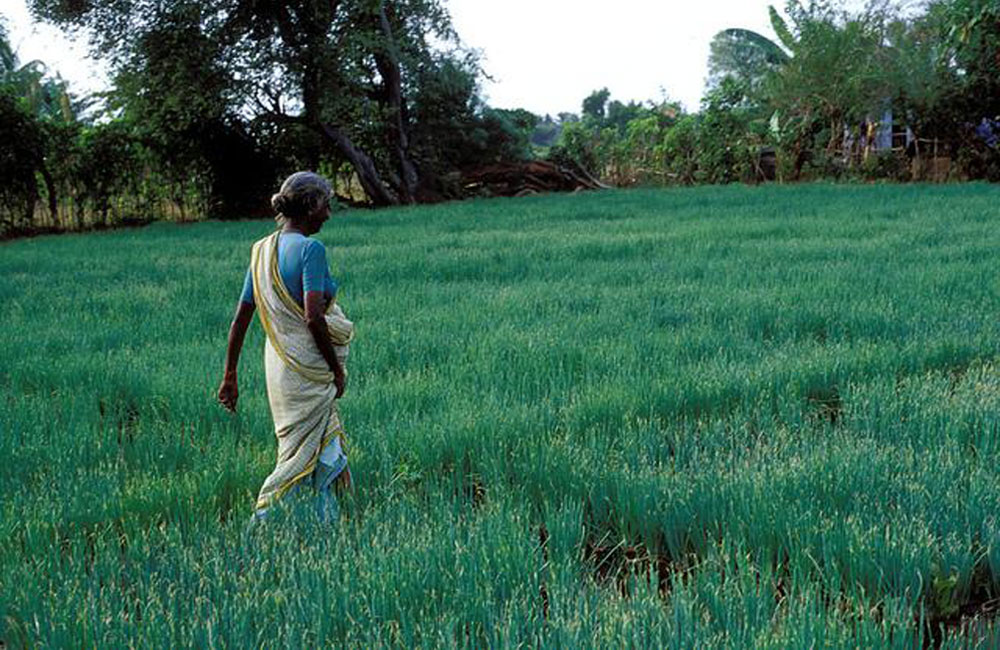
Digital data information project fails to provide benefits for farmers
The Digital Economic Strategy Development Project for Sri Lanka farmer’s insurance scheme has not been properly utilised by the Agriculture and Agrarian Insurance Board causing a heavy loss to the state, a government audit inspection revealed.
The Digital Economic Strategy Development Project for Sri Lanka was launched by the Ministry of Agriculture.
Under this project, the Agriculture and Agrarian Insurance Board had implemented a pilot project based on Gampaha and Badulla Districts to build a database of farmers' information, to identify farm lands for Sri Lanka and to digitise the information, the audit report revealed.
Even though the database prepared by the Department of Agrarian Development was intended to be used for the Gampaha District, the Board was unable to apply that database directly to the project implementation, it added.
Out of 80,006 plots of land in 26 Agrarian Service Centers in the Gampaha District, only 10,825 plots of land had been mapped due to protests of Agricultural Research Officers and financial difficulties occurred.
Out of 27,139 plots of land in 10 Agrarian Services Centers in the Badulla District, only 9,995 plots had been mapped and completed.
If this project is ceased halfway, implementing only within a period of nearly 7 months, the expenditure made amounting to LKR 9.61 million could be wasted, officials said.
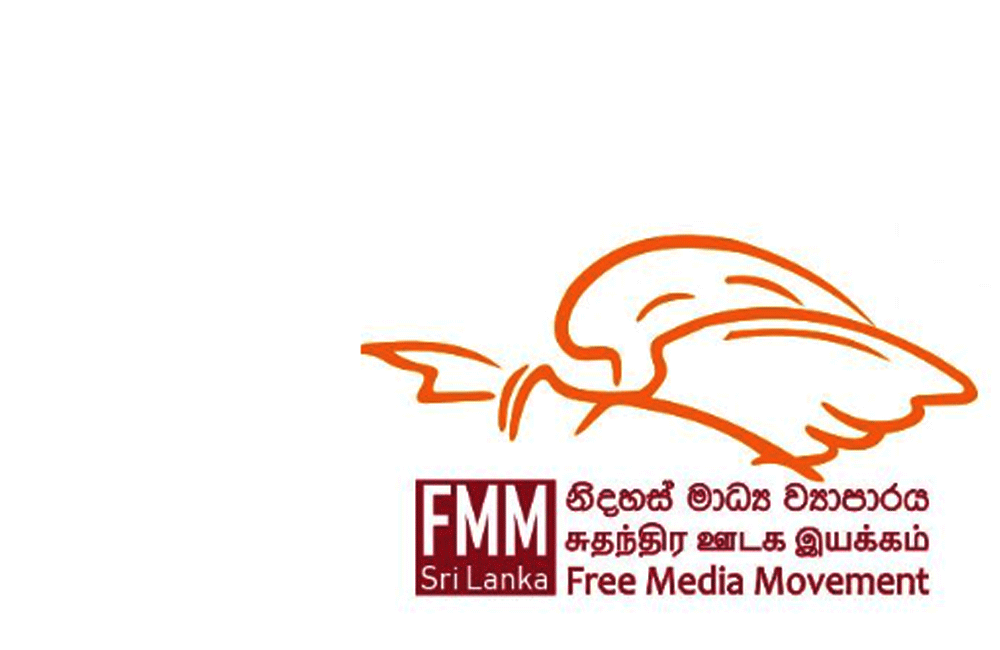
Free Media Movement opposes restructuring of the Press Council Act
The Free Media Movement in a letter to the Secretary of the Ministry of Mass Media and Information has vehemently objected to the structural reforms and reorganising of the Press Council Law, which is nearly 50 years old with legal provisions that are severely detrimental to media freedom, calling for it to be repealed.
The Media Ministry Secretary published an advertisement stating the expectation to structurally reform and reorganise the Sri Lanka Press Council established by the Sri Lanka Press Council Law No 05 of 1973 covering electronic, print and new media as a tribunal for journalists and media institutions.
The Free Media Movement, in a letter dated March 12, states that it has perennially objected to a unilateral media regulatory process by a government agency with detrimental legal provisions.
The movement agrees to "a regulatory" methodology encompassing all media that is developed through the engagement of the media community, protecting media diversity, independence, freedom and social responsibility. They have detailed the adverse legal provisions and the basis for opposing the Press Council in the following manner.
Adverse legal provisions that form the basis for opposing the Press Council
- The Press Council is not an independent institution
- According to Section 3 of the Press Council Law of Sri Lanka, out of the seven members of the Council, the President appoints six members. Since it is a process that takes place at the absolute discretion of the President, the Council has become an institution composed solely of the persons required by the President.
- The Council has also lost its independence with the President's power to remove its members.
- The independence of the Council is also lost with the Minister in charge of the subject determining the salary of the members of the Council.
- Members are eligible for re-appointment after a term of three years and such appointments are made at the sole discretion of the President, therefore it is not possible to avoid the members of the Council inevitably becoming persons who do what the President wants.
Minimal representation of the media sector in the Press Council
A representative of working journalists under Section 3 (b) (1) of the Press Council Law of Sri Lanka and a representative of the Press Trade Union in terms of Section 3 (b) (2) are the only representatives from the newspaper industry. Accordingly, out of the seven members, only two members represent the sector. It is by no means a fair representation. Also, according to Section 7 of the Law, it is stated that the Council can act notwithstanding a vacancy amongst the members of the Council, thereby permitting the Council to function even in the absence of the two representatives of the newspapers.
Certain offences under the Press Council Law restrict media freedom
According to Section 16 of the Law, it is an offense to publish information on Cabinet proceedings in newspapers unless the Secretary to the Cabinet of Ministers has approved it for publication in the Newspapers. This provision is very outdated and violates the freedom of the press as well as the people's right to information.
Absence of a provision for appeal - The decision is final
Section 9 (5) of the Law states that any order or censure of the Press Council shall be final and conclusive and shall not be questioned in any court of law. Accordingly, there is no authority or tribunal to appeal against such a decision of the Council. This is contrary to Article 4 (2) of the Convention on Civil and Political Rights No. 56 of 2007. In particular, when considering Article 12 (1) of the Law, which states that a violation of the order of the Council is construed as guilty of the offence of contempt against or disrespect of the authority of the Council is in no way in agreement with the rule of law.
Provisions for the offence of contempt against the Council
Article 12 of the Law states that the Supreme Court has the power to hear cases of contempt of court and that the Supreme Court must accept the certificate submitted with the signature of the Chairman of the Press Council at such a hearing without further proof. It also states that Council members should not be summoned for the case without their consent in such an offence of contempt. Accordingly, journalists find it difficult to challenge the certification submitted by the Council to the Supreme Court. It also exacerbates the situation by not having the opportunity to file a civil or criminal case against the Council.
The Commission did not seek the views of the media in prescribing the Code of Ethics for Newspapers
Section 10 (2) of the Law provides the power to prescribe a Code of Ethics as a function of the Commission. However, when it comes to establishing media ethics, the Council has the power to do so without any consultation with the media. It, therefore, appears to be a media regulation carried out from outside the media sector.
Introduce offences that could result in imprisonment through a summary trial
Section 15 of the Press Council Law of Sri Lanka defines a number of situations as criminal offences and carries a fine not exceeding five thousand rupees, or with imprisonment of either description for a term not exceeding two years or with both such fine and imprisonment. Introducing offences that result in the imprisonment of journalists by a regulatory Law is not appropriate. The most serious situation is that under Section 31 of the Law, a Magistrate Court should hear cases for offences through a summary trial. It is a great injustice to the journalists to be prosecuted based on a complaint lodged by a non-independent entity.
The Free Media Movement, which has stated in its letter that it will not comment on the practical issues about the Press Council, has urged the Secretary to the Ministry of Mass Media and Information to repeal the Press Council Law that contains the above detrimental legal provisions.
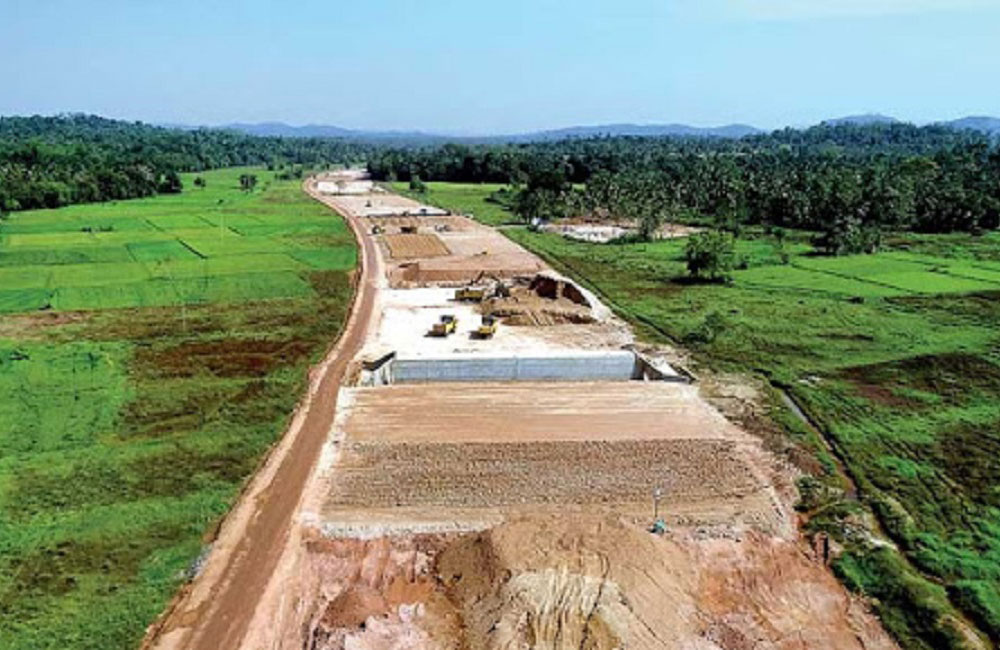
Government fails to utilise foreign funds for road development
The Government has failed to utilize foreign funds granted for three Road development projects in the island.
The foreign loan funds obtained on road construction projects should be utilized within the relevant period of loan agreement thus completing the planned constructions.
As a sum of LKR 28,829.53 million from the loan funds obtained with respect to 03 projects had not been utilized within the period of agreement, those funds had to be returned to the institution that had provided the loan, a report by the Auditor General revealed.
As such, part of the constructions planned could not be completed, and commitment charges too had to be paid on the unutilized loan funds.
An exchange loss of LKR 9,527 million had been sustained as at 31 December 2019 on Phase III of the Outer Circular Expressway.
The loss represented 15 per cent of the sum that had been utilized being LKR 62,702 million.
This was attributable to the reasons such as, rapid devaluation of rupee against the dollar, unfavorable payment conditions in the contract agreements, delays in constructions.
Only 50 per cent of the entire loan had been utilized in the year 2019 – the year in which the loan agreement had become expired.
Meanwhile the Road Development Authority (RDA) has failed to take over some of the compensated land plots incurring heavy loss for the treasury, a recent report of the Auditor General divulged.
Once compensation is paid for the lands acquired for constructing roads, the ownership of such lands should be vested in the Road Development Authority in terms of Section 44 of the Land Ordinance, No. 13 of 1986.
Compensation totaling LKR 19,817.86 million had been paid by the RDA for the acquisition of 12,980 land plots relating to 05 road construction projects.
Only 412 plots of land therefrom had been registered under the RDA as at 31 December 2019.

AstraZeneca: UK Premier defends covid vaccine shot over blood clot fears
British Prime Minister Boris Johnson on Tuesday defended the safety of the AstraZeneca coronavirus vaccine, after several European countries halted its rollout over blood clot fears.
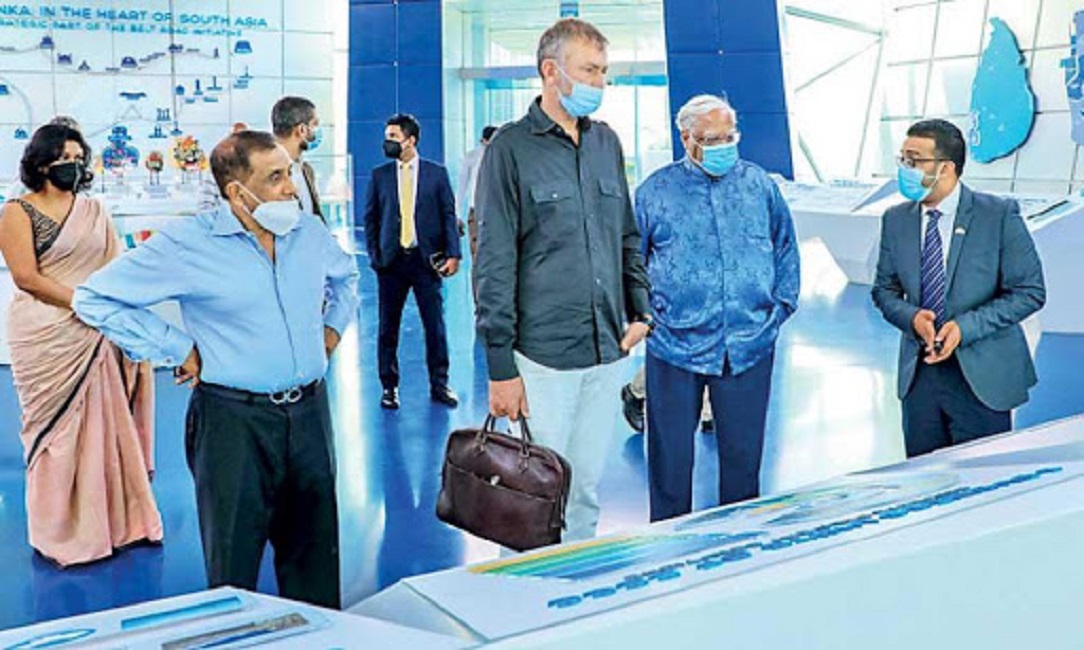
Russian billionaire to invest in Sri Lanka
Special Russian business delegation will be visiting Sri Lanka to explore investment opportunities and to establish contacts with local counterparts on the directions of visiting Russian billionaire Andrey Igorevich Melnichenko.
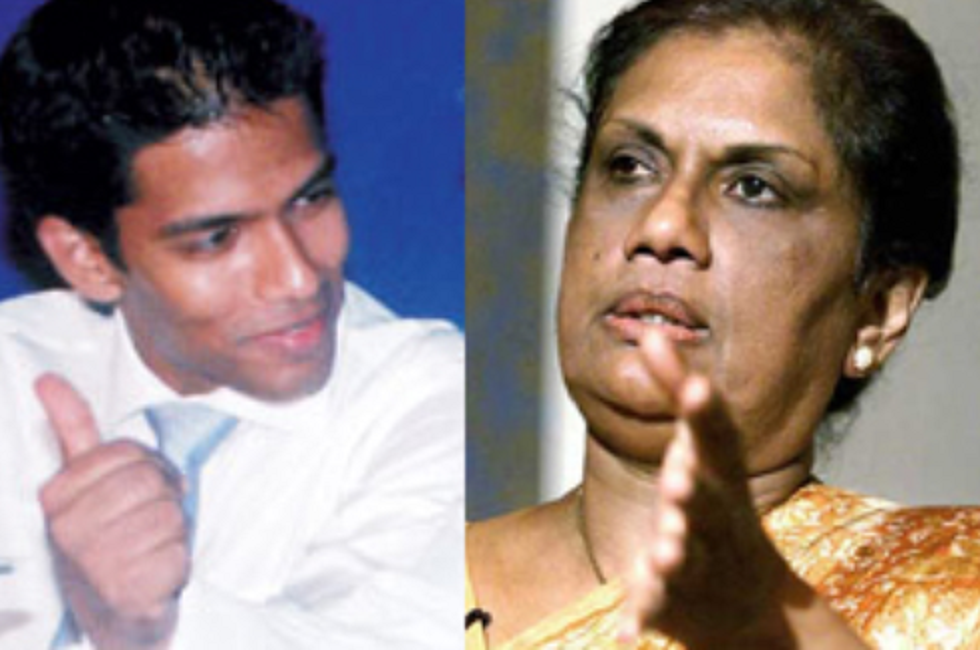
Vimukthi will join if Sri Lankan youth decides to change the current political culture - Chandrika (Video)
When questioned whether Vimukthi Kumaratunga would enter into politics in the future, former President Chandrika Bandaranaike Kumaratunga said that he would likely join if the youth of this country decides to change the existing political culture.
Page 213 of 510